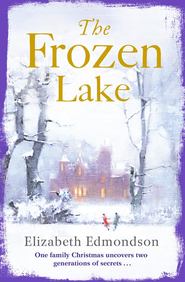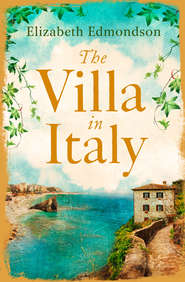По всем вопросам обращайтесь на: info@litportal.ru
(©) 2003-2024.
✖
The Art of Love
Автор
Год написания книги
2018
Настройки чтения
Размер шрифта
Высота строк
Поля
What about orphans, who were adopted and given a name by their new parents? Or, for women, marriage changed your name, you became Mrs Roger Harrington, or even — since she had noticed that the servants in Bryanston Square called Roger ‘Mr Roger’ — Mrs Roger.
Spies changed their names, and so did criminals on the run. Authors wrote books under pseudonyms. Actors and actresses had stage names, look at her friend Tina Uppershaw, born Maureen Scroggs. Film stars who started life as a Mavis or a Ken became a Carole or a Ronald, with a new surname that would look good in lights.
For Polly, names had a special dimension. She saw letters in colour, and words and names were a glowing blend of those individual colours. Polly was slate blues and greens with flashes of light and yellow. Pauline was another colour, a darker one, but since she never used it, it didn’t bother her. Smith was brown and maroon with touches of grey. Whereas Polyhymnia was a much more complicated palette of light and dark, warm and cold colours making an intriguing but unfamiliar whole. Tomkins was a grey and pink name, with a touch of wine at the edges.
Polly sighed. This was making her head ache even more, she must stop these thoughts going round and round in her mind. She made herself focus on her surroundings, she had long ago discovered that to live entirely and intensely in the present moment was a cure for most ill moods and worrying times.
Polly’s room was perfect for an artist. It had a north-facing skylight and a dormer window looking out over a parapet to the smoky chimneys of London. Her narrow bed, covered in a blue and yellow cloth, was set under the eaves, which meant that she had to sit up carefully in bed, so as not to crack her head on the sloping ceiling. Her clothes hung on a rail behind a curtain and she kept the rest of her things in a large chest of drawers set against another sloping ceiling, which left space behind it for her suitcase and various other possessions. The floorboards were uncovered, except for a small blue rug beside the bed. By the door was a washbasin, a great luxury. The bathroom was two floors down, and shared with the other occupants of the house: her landlady, Mrs Horton, her daughter, who was a nurse and kept odd hours, and three other lodgers.
Polly looked around her room, seeing it not as the haven it had been to her, a haven and a workplace, with her easel set up in the centre of the room, her paints and tools on a table beside it, not the place where she lived and worked, but a place inhabited by a stranger.
She crouched down beside the gas ring on which she boiled her water and did all her cooking, turned on the gas, which came on with a hiss, and struck a match. The burner lit with a soft popping sound. She had a saucepan with soup she’d made the day before and she put it on to heat.
This room belonged to Polly Smith. Only she wasn’t Polly Smith.
She sat down at the table and opened a sketchbook. She unscrewed the cap of her favourite fountain pen, and with a few swift strokes, drew herself. A realistic self portrait; this was the face that looked out at her from the mirror, was caught in snapshots or, looking severe and criminal, the face in the photo which she had had taken for her passport.
Then she drew another figure, a faceless young woman, dressed not in a limp skirt and jumper, but in a trailing robe. She added a sleek hairdo and whorls of smoke rising from a cigarette in an absurdly long holder.
Polyhymnia Tomkins, sophisticate.
Now her pen was working rapidly, and more featureless figures danced off the page. A Grecian woman, in flowing robes, swirling down on a parson sitting at an organ. Polyhymnia, Muse at work. Next came a woman dressed in breeches and a pith helmet who was gazing at a supercilious camel. Beneath that she wrote, Polyhymnia Tomkins, explorer.
Then a woman in a sensible tweed suit pushing a pram with a felt hat on her head. That was Mrs Roger Harrington. Of course, when she married Roger, she wouldn’t be Polly Smith in any case, she would lose both Smith and Tomkins, for ever. And as to the Polly, she would just go on being Polly as she always had done.
This prospect didn’t cheer her up as much as it might have done. She would have to tell Roger, of course. Tell him that he wasn’t marrying respectable Polly Smith, daughter of the respectable Mr and Mrs Smith of Bingley Street, but Polyhymnia, bastard daughter of Thomasina Tomkins, father unknown.
Father unknown. Was there any way you could discover who your father was, when your mother vanished without saying? Why hadn’t Ma — who wasn’t her mother, but her aunt, how could she ever get used to that? — questioned her real mother more vigorously, insisted on being told who was the father of her child? Or made an effort to find this out, while the trail was still hot and it might have been possible to discover who Thomasina’s friends were, and who among them had been more than a friend?
Of course, her mother might have had dozens of lovers. Might even have been — no, she wasn’t going to think that for a moment. There had been an exasperation in Dora Smith’s voice when she reluctantly spoke of her sister, but no moral disapproval. She wasn’t much given to moral disapproval, which was another thing that singled her out from her neighbours.
A married man, probably, thought Polly with all the cynicism of her twenty-five years. An old story, and a simple one: an affair which could never end in marriage. The man refusing to acknowledge a child, or maybe Thomasina too proud or too kind to threaten her lover’s marriage. France was a Catholic country, if the father were a Roman Catholic, then the situation would be hopeless, even if her father had wanted to marry her mother.
Could she find out more about her mother, somehow? She wouldn’t have Ma’s help if she tried to, that was clear. ‘I’m not going to say another word about Thomasina, and that’s final. It’s all over, it’s all in the past, and that’s where it will stay. No good ever came of delving into the past.’
There was no arguing with Ma when she had that look on her face. The Inquisition wouldn’t have been able to get anything out of Dora Smith once she’d made up her mind.
Wild thoughts of employing a detective flitted through Polly’s head — only how could she possibly afford a detective? She could try herself to find out more, but where would she begin? Tomkins was such an everyday name, not quite as ordinary as Smith, yet there must be thousands of Tomkins in the British Isles. Since she hadn’t the slightest idea what part of the country Dora or her family came from, it would be pointless trying to find out more.
The soup bubbled and rose to the top of the pan, and Polly only just whipped it off before it dribbled down the side of the saucepan. She poured it into a bowl, spread a thin layer of margarine on a slice of bread and, pushing aside her sketchbook and pencil, set the soup on the table.
She ate slowly, looking into the distance, not seeing her familiar surroundings, but a strange place, full of people she didn’t know. A world to which she was connected, but one where she had no presence or substance. She shook her head. Then she glanced at her wristwatch. Oh, Lord. Ten past eight, and she was supposed to meet Roger at twenty past, when he came off duty at the hospital. She gulped down the last of the soup, dumped the bowl and spoon in the basin, pulled on her mac, rammed her beret on to her head, picked up her shoulder bag and ran out of the room.
THREE
Dr Roger Harrington was waiting at the corner as Polly came panting up. Sturdy, good-looking, he had an air of competence and a cleft to a strong chin that betokened a firm if not obstinate nature. This evening there was a weary look about his eyes, not surprising when he’d been on duty for more than twelve hours.
‘Really, Polly, you must try to be more punctual,’ he said, as she put up her face for a kiss.
‘Sorry,’ said Polly.
‘I thought we’d go to the pictures, but we’ll have to buck up if we’re going to get there on time.’
Polly had to jog to keep up with him. ‘What’s on?’
‘We’re going to see The Mayor of Hell. James Cagney.’
Polly sat through the film with the action on screen barely registering in her mind. Somehow, that evening, she must tell Roger what she had discovered: that she wasn’t who he thought she was, that he was engaged to a woman who didn’t exist, and instead had attached himself to the illegitimate offspring of Thomasina and God knew who.
It was made worse by the fact that Roger, after the film was over — a film that he said he’d really enjoyed — was full of his latest medical interest. ‘Heredity is the key to everything,’ he was saying. ‘That’s what makes us what we are. There’s no getting away from it. Just like with racehorses, who your parents and your grandparents and great-grandparents are determine just who and what you are.’
‘I don’t know much about my grandparents,’ Polly began, seeing an opening.
‘It doesn’t matter. I’ve seen photos of your father, a fine, upright man, and he died bravely, so he clearly had a good character. That’s what counts. And there’s nothing wrong with your mother, she’s healthy and reasonably intelligent. Hardworking, responsible, look what a good job she’s made of bringing you up single-handed, there’s no reason why you won’t be the same. And she’s artistic, and so are you. With her it’s music, with you it’s paint, but it’s all the same. Temperaments and choices are predetermined you see, by our genes.’
Polly wasn’t sure what genes were, and felt that she’d rather not know.
‘And here I am, a doctor and the son and grandson of doctors. It’s in my blood.’
Polly could see a number of objections to this. There was Shakespeare, the son of a glover, or had his father been a butcher? No literary genes there, unless his mother had been a poet in secret, but she had a suspicion that the female line didn’t count as much in Roger’s thinking as the male one. ‘What about someone like Leonardo da Vinci?’ she said, tucking her hand into his.
‘What’s he got to do with it?’
‘His parents weren’t artists. He was illegitimate, you know.’
They were under a streetlight, and Polly could see the frown on Roger’s firm brow.
‘Was he? That’s something that we, as a nation, are going to have to be very careful about, now that all this new stuff about heredity is being discovered. It’s too risky having children growing up who don’t know who their fathers were. Besides, the chances are that the children of a woman who isn’t married will inherit her lax morals, and will go the same way themselves.’
No, this wasn’t the moment to tell Roger about Polyhymnia Tomkins.
At Polly’s house, he took the key from her and opened the front door. Then he gave her a chaste kiss and walked briskly away. Polly stood for a moment in the doorway, watching his upright retreating back.
He never came up to her room with her in the evening. The only time he ventured there was in broad daylight, at teatime, and then he left the door open. ‘You don’t want to get a bad name with your landlady or your fellow lodgers,’ he told her.
What if he was right, like mother like daughter, and she was destined for a wild life of immorality instead of a safe marriage to a good man? Yet her life so far had hardly been characterized by sexual recklessness.
Polly’s first fling had been a minor one, a step taken in a spirit of determined curiosity with an older man, a friend of Oliver’s who had invited her into his bed when she was spending a weekend in the country, a bohemian household ruled over by a famous painter, where it seemed that bedroom doors opened and shut as a matter of course. He was an attractive man, but she hadn’t enjoyed the experience greatly, He had laughed at her and said that the worst was over, and once she lost her heart to a man, she would find sex exciting and ecstatic.
Then she met Jamie, a fellow artist, and she discovered that Oliver’s friend had known what he was talking about. Jamie; no, she wasn’t going to think about Jamie, brilliant, erratic, blissful in bed, funny — and, like so many of his contemporaries, with his soul scarred by four years of war that he’d been lucky to survive.
Polly pulled the pillow over her head to shut out her thoughts as well as the sounds of the dachsund on the other side of the street, who barked every night until his mistress came home, and she felt nothing but gladness that the day, a day which had held such astonishing revelations, was over.
Tomorrow, she would go first thing to Somerset House and get that damned birth certificate.
Polly Smith was a sound sleeper, oblivious to the world almost the moment her head touched the pillow.
Polyhymnia Tomkins, it seemed, was troubled with insomnia. Polly woke at four in the morning after several restless hours. She slid out of bed, pushing damp hair back from her forehead, why was she so hot? She drank a glass of water, and looked around for something to read, anything to take her mind off the thoughts that were driving round and round in her mind.









